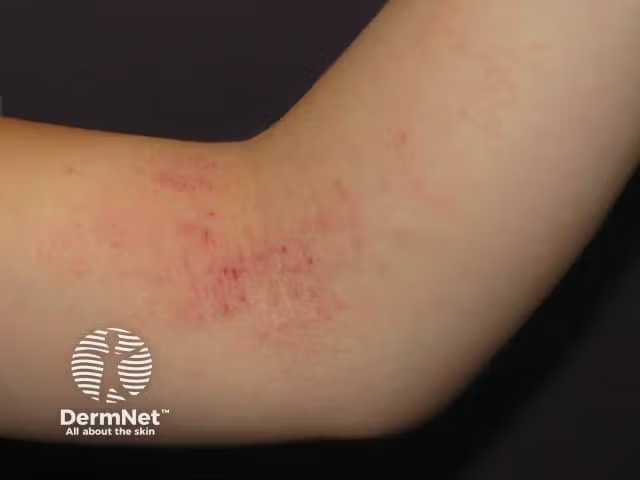- Case-Based Roundtable
- General Dermatology
- Eczema
- Chronic Hand Eczema
- Alopecia
- Aesthetics
- Vitiligo
- COVID-19
- Actinic Keratosis
- Precision Medicine and Biologics
- Rare Disease
- Wound Care
- Rosacea
- Psoriasis
- Psoriatic Arthritis
- Atopic Dermatitis
- Melasma
- NP and PA
- Skin Cancer
- Hidradenitis Suppurativa
- Drug Watch
- Pigmentary Disorders
- Acne
- Pediatric Dermatology
- Practice Management
- Prurigo Nodularis
- Buy-and-Bill
Video
Guidelines and Recommendations for Therapies in AD
Author(s):
Experts in dermatology review recommendations for systemic therapies and JAK inhibitors in the management of AD and other factors that guide treatment selection.
Jonathan I Silverberg, MD, PhD, MPH: We don’t have head-to-head studies for everything, but we do have network meta-analyses that have compared between the trials and the different drugs. We see upadacitinib at a 30-mg dose is the most effective, but it’s close behind with abrocitinib 200 mg and you have upadacitinib 15 mg. Then you have this neck and neck tie between dupilumab and abrocitinib at 100 mg. It depends; if you go long enough, dupilumab slightly overtakes abrocitinib 100 mg. It gives you some sense of comparative effectiveness of a week-16 time point. Tralokinumab is a bit further behind, but if you follow beyond week 16, tralokinumab catches up and then looks just as good as dupilumab.
They’re really all good options. I think the one thing that’s worth mentioning because we didn’t talk about it is, technically in the United States, the oral JAK inhibitors, abrocitinib and upadacitinib, the recommendation the FDA has—which is their own arbitrary decision, it’s not the way it was studied in the trials—is to say use it in someone who had a systemic failure previously. It doesn’t have to be dupilumab or tralokinumab, but a systemic failure. So technically on-label use would mean going through something first, and I’ve got plenty of patients where I’ve had to go to the JAKs in the first line. Maybe this is a patient where, if they’re truly needle phobic, I would. But I disclose to them that technically that’s off label, you haven’t gone through another systemic first.
Elizabeth Swanson, MD: Totally.
Jonathan I Silverberg, MD, PhD, MPH: Brad, did you have a point?
Brad Glick, DO, MPH, FAOCD: It would make individuals not candidates for an injectable therapy when they don’t want an injectable therapy. I would have to see it right in front of me, I don’t have it memorized, the indication. I know a lot of times, the words “not recommended” are utilized. Not recommended, to me, it doesn’t mean you can’t do that. I think to your point, it requires a discussion point.
Andrew Blauvelt, MD, MBA: I have a question for you guys because this is a practice question, an access question, but would a course of prednisone at some point in their disease make you check the box that they have been on or failed a systemic therapy?
Elizabeth Swanson, MD: Yes, I think that’s legitimate.
Brad Glick, DO, MPH, FAOCD: I agree completely.
Jonathan I Silverberg, MD, PhD, MPH: I would because if they magically got better with whatever the short course is, OK, whatever. I’m not a fan of steroids, but if it is, it is. But if they need longer-term therapy, then that’s contraindicated by all the guidelines, and that means they technically had a failure, so I would interpret it that way for sure.
Transcript edited for clarity






